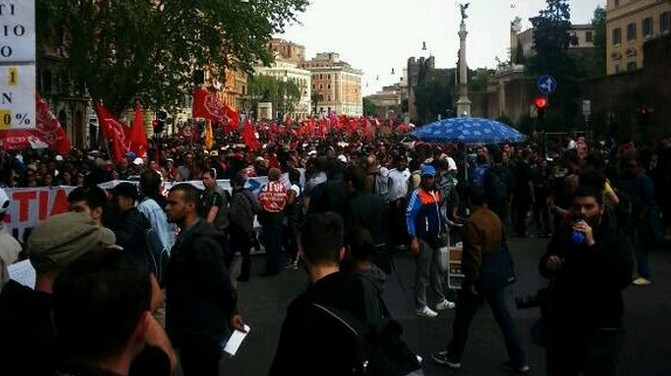In Italy, protests continue against the government for plans that would criminalize the basic right of Italians to a house. The protesters are criticizing the government for using the housing crisis and austerity–which protesters refer to as “artificial impoverishment”–to push for further gentrification in the nation.
The Italian government approved the first changes to the housing plan early this year. The changes have been contested throughout Italy, particularly by poor workers, social activists and refugees, who are most affected by the austerity measures.

Profits created by the austerity measures, the protesters charge, benefit private interests, although they are funded by public
money. These profits go to real-estate speculators and political sponsors. The measures will exacerbate social exclusion of the poor and vulnerable, the protesters contest.
The current protests are taking place in Bologna.
Earlier, in Florence protests took place to prevent poor families from having their electricity shut off because they could not pay their bills.
Activists are particularly focusing on the Italian housing law’s Article 5, “Fighting Illegal Occupation of Properties,” which reads:
“This article stipulates that anyone occupying a property illegally can not apply for residency or connection to public services in relation to the property while also providing the same nullity ex lege of the effects of the acts issued in violation of this prohibition.
“The RT is limited to reiterate that the device requires that anyone who illegally occupy a property without title can not ask for a residency or connection to public services in relation to the property itself. It is also expected void ex lege of the effects of the acts issued in violation of this prohibition.
“The arrangement, character of the legal order, does not result in new or increased charges for public finance.
“In this regard, there is nothing to observe.
The next protests have been planned to place in Pisa September 6-7.
By James Haleavy
